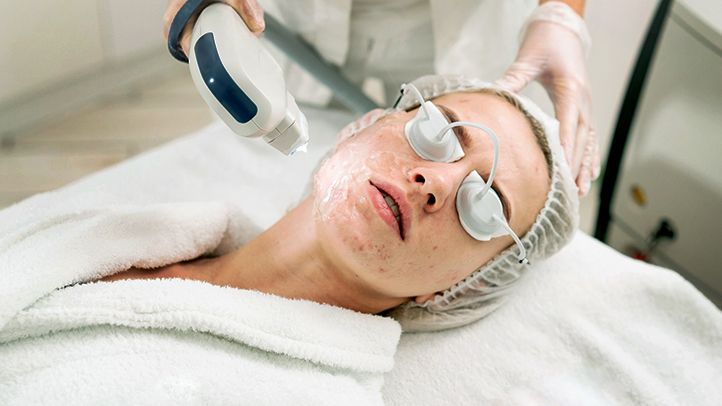Dermatologists play a crucial role in treating acne scars, helping patients achieve smoother, more even skin texture. Acne scars can vary in type and severity, and dermatologists tailor treatments based on individual needs.
Here are some common treatments dermatologists recommend for acne scars:
- Topical Treatments: Dermatologists may prescribe topical treatments containing ingredients like retinoids (such as tretinoin), which promote cell turnover and collagen production, helping to improve the appearance of mild acne scars over time.
- Chemical Peels: This treatment involves applying a chemical solution to the skin to exfoliate the top layers, promoting new skin growth. Superficial peels can improve mild scarring, while deeper peels may be used for more severe scars.
- Microdermabrasion: During this procedure, a dermatologist uses a handheld device to gently exfoliate the outer layer of the skin. It can help improve the appearance of shallow acne scars and stimulate collagen production.
- Micro needling: Also known as collagen induction therapy, micro needling involves using a device with fine needles to create tiny punctures in the skin. This process stimulates the skin’s natural healing response, promoting collagen production and reducing the appearance of acne scars.
- Laser Therapy: Various laser treatments can target different types of acne scars. Fractional laser therapy, for example, creates tiny micro-injuries in the skin to stimulate collagen production and improve scar texture. Other lasers, like pulsed dye lasers or intense pulsed light (IPL), can help reduce redness and pigmentation associated with acne scars.
- Filler Injections: Injectable fillers containing substances like hyaluronic acid can temporarily fill in depressed acne scars, making them less noticeable. This is particularly effective for rolling or atrophic scars.
- Subcision: This procedure involves using a needle to break up the fibrous bands that tether the scarred skin to deeper tissues. By releasing these bands, the skin can gradually smooth out and reduce the appearance of certain types of acne scars.
- Surgical Excision: For deep or stubborn acne scars, dermatologists may perform a minor surgical procedure to remove the scar tissue and close the wound with stitches. This is typically reserved for more severe cases.
The choice of treatment depends on factors such as the type and severity of acne scars, skin type, and individual preferences. Dermatologists assess these factors during a consultation and recommend a personalized treatment plan to achieve the best results. It’s important for patients to follow post-treatment care instructions and attend follow-up appointments for optimal outcomes.





Comments